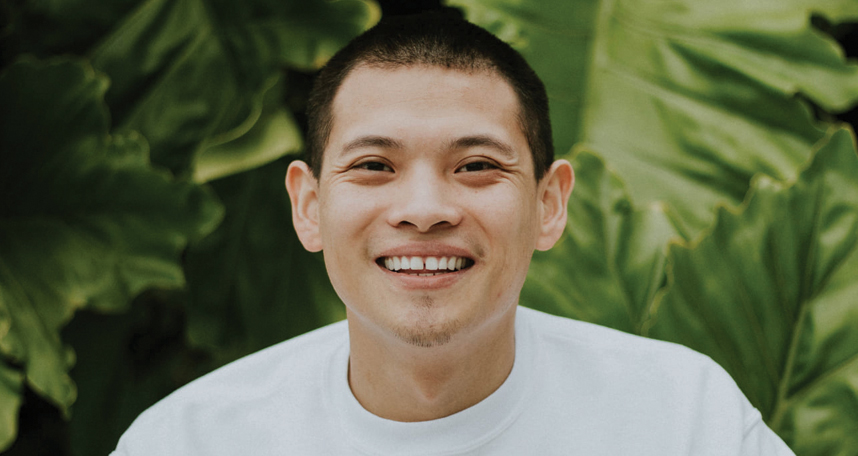Learning has always been central to the life of the Rev. Dr. Aizaiah Yong.

“I was raised in an immigrant family,” he said. “My father’s family is from Malaysia, and my mother’s family is Mexican American. Both of my parents are educators and raised my two younger siblings and me with deep commitments to faith and hospitality to diversity.”
That love of faith and diversity helped Aizaiah win the Panikkar Prize, paying tribute to Raimon Panikkar, beloved Hindu-Catalan philosopher-theologian and promoter of the intercultural and interreligious dialogue.
“Raimon Panikkar has played an extremely significant role in my personal life,” said Yong. “Not just his scholarship and his writing, but who he was as a spiritually rooted person and Christian mystic, navigating a world that was beginning to grapple with diversity in significant ways throughout the 20th century.”
Yong received the international prize for his work: Multiracial Cosmotheandrism: A Practical Theology of Multiraciality Inspired by the Life, Philosophy, and Mysticism of Raimon Panikkar. The work critically explores how the lives and spiritual experiences of multiracial people transform efforts towards racial and planetary justice and is to be published in 2023.
“Rev. Dr. Yong is an exciting young scholar whose work inspires people of faith to lives of compassion and adventure as we seek justice and peace, for such a time as this,” said Robert Ellsberg, Publisher, Orbis Books.
Aizaiah says Panikkar helped him step into a fuller version of himself.
“I was always having to compromise or give up something of myself, in every place I went. (Through Panikkar) I really became this person who said, ‘No, I embrace everything of who I am – the languages, the cultures, the religious identities. I’m completely 100% all of those things.’ And as a mystic, my identity also transcends them all.”
This fall, Aizaiah returned to Claremont School of Theology, his alma mater, to serve as interim associate dean of students and assistant professor of spirituality, but teaching life lessons to his three young children – all under age 6 – is what really makes him tick.
His day starts bright and early as he wakes his children and makes them breakfast. They eat together and pray for their day, and he drives them to school. In the afternoon, he picks them up, and they spend a few hours playing together or exploring outside.
“We eat dinner as a family and do bath time before bed,” Aizaiah said. “I finish the day in a contemplative practice with my wife, reflecting on the day and extending gratitude.”
He loves his work.
“In my job,” he said, “I have the privilege of teaching, writing theology and meeting one-on-one or in small groups for conversations around vocation, leadership and spiritual formation. My intention is to be someone who is authentic, honest and open-hearted. If I can play a small part in co-creating a community where each person experiences belonging and care in their cultural and personal uniqueness, I will be grateful.”
Born in the Pacific Northwest, Aizaiah spent his childhood and youth in communities across the United States.
“I have felt a call to ministry since my teenage years,” he said. “As a Pentecostal Christian, my calling is fueled by powerful and personal experiences of the divine, and as a multiracial person who grew up in a low-income household, I am also passionate about how spirituality empowers healing justice in the world that flows in solidarity with others.”
Aizaiah was drawn to CST “because of its rich ecumenical and interreligious heritage, as well as its legacy of preparing leaders to engage the world through compassion and courage.”
He graduated from CST’s Ph.D. program in practical theology, which he described as “life changing.” The faculty, staff, students and administration “continually encouraged me to trust in my unique voice, experience and leadership potential,” Aizaiah said. “I love getting to have a front-row seat to the transformation taking place in people’s lives. I feel so much gratitude to bear witness to new possibilities for our world that overcome fear and transform violence through love.”
The toughest part of Aizaiah’s job, he admitted, is maintaining a rhythm of compassionate self-leadership. “We are living in a time of tremendous change, and it is easy to be impatient and hurried. I believe in this kind of time. While perhaps unpopular, choosing to live and work intentionally honoring our humanity is of utmost importance for our long-term sustainability.”
Aizaiah hopes that people will feel inspired and challenged by his work. “Inspired that there is a much greater and bigger reality taking place than we are normally aware of,” he explained,” and challenged to keep dreaming, pursuing and being open to ongoing change, along with the divine amid the world’s affairs.
“My career has taught me many things,” he said, “but one of the greatest lessons is about embracing the divinity of our lives made transparent through our own vulnerabilities. We are often taught that to be spiritual people or leaders is to help others and dismiss ourselves.”
However, he noted, “We are called to love ourselves, one another and the earth with care, attention and grace. I am still on the journey of learning to do this day by day.”

